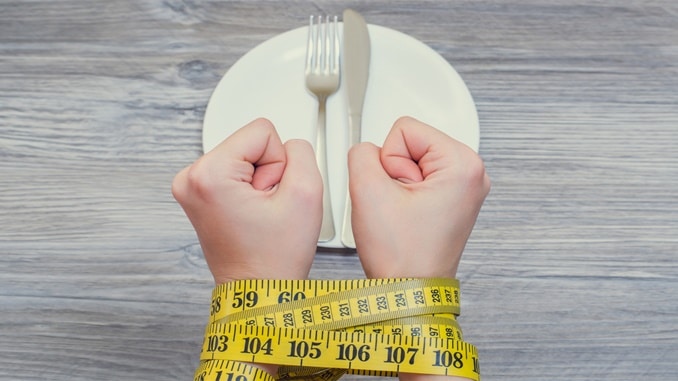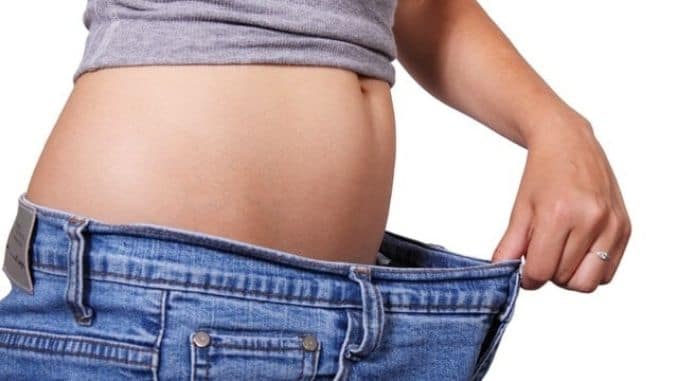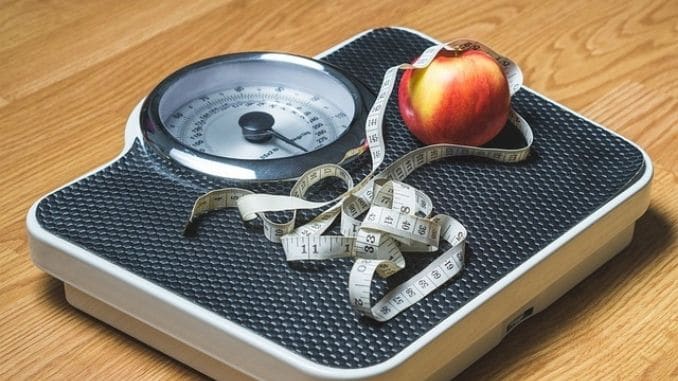
Rita had been on her diet for going on four weeks, and her scale had barely budged. During the first week, she lost a couple of pounds but, after that, it was slow going, and she was starting to wonder if it was worth it.
You may have experienced something similar, where you disciplined yourself to go on a new diet, and you worked hard to stick with it, only to be disappointed about the results. What gives? What can you do to get your body feeling fit again?
The Factors That Can Cause a Diet to Fail and How to Deal With Them
Below, we have seven reasons why your diet isn’t working, and what you can do about each problem to reverse the results.
1. You’re Stressed Out
Moreover, if you’re stressed about your diet or something else in your life, you’re probably not going to see the results you’d like to see from your efforts. This one is listed first because, too often, we overlook the effects of stress on the body, particularly on weight, but it’s important to realize how significant those effects are.
When you’re feeling stressed, your body releases the stress hormone cortisol, which raises blood sugar levels. As that happens, another hormone called insulin leaps into action to process that blood sugar and store it as fat. Moreover. that means if you’re chronically stressed, you’re storing away more fat, no matter what you may be trying to do with your diet.
In a recent study of about 2,500 men and women age 54 and older, researchers looked at cortisol levels in locks of hair gathered from the participants and found that higher levels were linked with larger waist circumference and higher body mass index (BMI). The researchers concluded that chronic stress was associated with higher levels of obesity.
What to do: Incorporate some sort of stress-relieving activity into your daily schedule. Good options include exercise, journaling, meditation, yoga, time with a beloved pet, time out with friends and family, long walks, music therapy and engaging in hobbies you enjoy.
2. Your Gut Is Struggling
Moreover, your digestive system holds the key to the success of your diet. It’s up to your digestive system to properly break down your food, absorb the nutrients and get rid of the waste. Your natural gut bacteria play a large role in this process, with some types of working better than others. In fact, when scientists transferred bacteria from the guts of obese subjects into the guts of lean subjects, the lean subjects became fat.
In another study published in the Mayo Clinic Proceedings, scientists reported that participants who were successful in losing weight had gut bacteria that were able to break down carbohydrates better whereas those who were unsuccessful had different types of bacteria that didn’t work as well.
Furthermore, if you’re suffering from bloating, gas, heartburn and loose stools, those are signs that your gut needs some help. Moreover, you may be experiencing other symptoms too, including brain fog, sugar cravings, and anxiety. The gut and brain are communicating with one another constantly, so if the gut is unhealthy or off-balance, the brain will be affected as well.
A number of things can cause your gut to get out of whack. These include poor diet, intake of artificial sweeteners, high intake of processed foods and preservatives and treatment with antibiotics.
What to do: Eat more fermented foods to help restore healthy bacteria in the gut. These include kombucha, sauerkraut, kimchi, kefir, yogurt, miso, tempeh, pickles, and buttermilk. Consider taking probiotic supplements as well and avoid inflammatory foods like high-sugar items, high fructose corn syrup, refined carbohydrates (like white flour, rice, and pasta) and processed meats.
3. You’re Cutting Too Many Calories
Cutting calories is part of most diet programs. However, if you go too far, you can throw your body into starvation mode, which slows metabolism and makes it harder to lose weight.
In a 2006 study, researchers divided participants into two groups for four days:
- Slight calorie restriction — about 1,500 calories a day
- Moderate calorie restriction — about 1,100 calories a day
After four days, both groups showed significant decreases in body weight and metabolic rate. However, while the decrease in body weight was about the same for both, the decrease in metabolic rate for the moderately restricted group was 13 percent of baseline while it was only 6 percent of baseline for the slightly restricted group.
The researchers concluded that there was a “metabolic resistance” against calorie restriction and that the minimization of weight loss was due to dramatic decreases in metabolic rate. In other words, if you restrict your calories too severely, your metabolism will slow down to counteract that effect, holding onto those pounds you want to eliminate.
What to do: Eat breakfast as a way to let your body know that food is available and to get your metabolism going. Don’t skip meals, although you can skip snacks. Then, avoid restricting your calories severely and choose to cut back only slightly instead. If you stay consistent with a slight restriction, you should still see results.
4. You’re Not Getting Enough Sleep
Sleep is tied closely with both appetite and weight and, if you’re not getting the recommended seven to eight hours per night, your diet is unlikely to be successful. Studies have found that when you don’t get enough sleep, your hormones get so out of whack that you feel hungrier than usual the next day and tend to crave calorie-dense foods high in sugar and carbohydrates.
In a 2011 study, researchers noted that the worldwide prevalence of obesity has doubled since 1980 and that this obesity epidemic “has been paralleled by a trend of reduced sleep duration.” Moreover, they added that growing evidence points to short sleep duration and poor sleep quality as new risk factors for the development of obesity.
Other studies have shown that even minor weekly shifts in sleep timing or even as few as five consecutive nights of short sleep, have been associated with an increased risk of weight gain.
What to do: Get between seven and eight hours of quality sleep each night. Go to bed and get up at the same time, even on weekends. Keep all technological gadgets like computers, phones, tablet, and TVs out of the bedroom, keep the room cool and dark and invest in a quality mattress. Avoid stimulants like alcohol and caffeine at least three hours before bedtime. Moreover, exercise every day as it makes it easier to fall asleep.
5. You Need to Be NEATer
If you’re on a diet, but you’re sitting at a computer most of the time, you’re going to have a hard time losing weight, even if you work out for about an hour each day. That’s because the energy you expend throughout the day can have a large impact on how many calories you burn — or don’t burn.
Non-exercise activity thermogenesis (NEAT) is a term that refers to the calories you use when you’re not exercising per se, but you’re active in some way. Moreover, some examples of NEAT activities include:
- Walking around
- Climbing stairs
- Doing the dishes
- Cleaning house
- Cooking
- Pacing and/or fidgeting
- Carrying groceries into the house
- Transfer from sitting to standing
How many NEAT activities you do each day can make a big difference in how many calories you burn. In a 2006 study, researchers found that NEAT varied substantially between people by up to 2,000 calories per day. They also found that obese individuals were more likely to sit still 2.5 hours per day more than their lean counterparts.
What to do: Find ways to move more throughout your day. Park the car farther away from work or the store. Take the stairs. Stand up when talking on the phone. Go for a short walk. Keep a jump rope at your desk and use it every two hours. Incorporate a standing desk into your office so you can stand part of the time. Turn on the music and dance for a few minutes. The possibilities are endless.
6. You’re Not Drinking Enough Water
Furthermore, water can help you lose weight if you use it the right way. First, it can encourage you to consume fewer calories. In one study of more than 18,000 adults age 18 and older, researchers found that just one percentage point in the proportion of daily water consumed was associated with a reduction of about eight to 10 calories per day.
Moreover, those who increased their water consumption by one to three cups a day reduced their caloric intake by 68 to 205 calories per day. Drinking more water was also linked with a lower intake of sugar-sweetened beverages, lower total fat intake, and lower sugar intake.
In a 2013 review of 11 studies and two reviews, researchers found that participants who were on a weight-loss program who also increased water consumption reduced body weight after three to 12 months more than those who did not drink more water.
Drinking more water can also help improve your body’s ability to burn calories. It keeps your metabolism humming. In one study, scientists had participants drink water and then tested their metabolic rate. Drinking 500 milliliters of water was found to increase metabolic rate by 30 percent. The increase occurred within 10 minutes and reached a maximum after 30 to 40 minutes.
What to do: The best way to tell if you’re drinking enough water is to keep track of it. Keep a chart nearby and make a mark whenever you finish a glass, then make sure you get seven to eight glasses a day. Take a water bottle with you everywhere and sip from it throughout the day. Try making sure you drink at least one full glass of water within 15 minutes of getting up in the morning. When you feel hungry, drink a glass of water first. Often, the brain tells you you’re hungry when you’re actually thirsty.
7. You’re Not Doing It Your Way
If there’s one new thing that scientists have learned about losing weight, it’s this: no one diet works for everyone. It turns out that there are a lot of differences between people that can affect how well a diet works. So, while one diet may have done wonders for your friend, if it’s not working for you, that doesn’t mean you’re failing — it could just mean that you need a different approach.
The National Weight Control Registry (NWCR) tracks people who have lost weight successfully and kept it off. The registry includes information from more than 10,000 people from across 50 states with an average loss of 66 pounds per person. An analysis of that data shows that people lose weight differently. About 45 percent of the group lost weight on their own following various diets while 55 percent followed a structured weight-loss program. Most had to try more than one diet before they found one that worked and was highly motivated to make it happen.
Almost all of the people made changes to their everyday behaviors. They modified their diet somehow by eating a little less each day or by cutting back on carbohydrates or fat. They also increased physical activity, with the most popular form of exercise is walking. Almost all ate breakfast every day, weighed themselves at least once a week and exercised at least an hour each day.
What to do: Adjust your diet as you need to so that it works for you. If you’re binging on food, failing to lose weight or struggling to stick with the diet, realize it’s not your fault — you probably just need to make some changes so that the diet fits with your lifestyle. Find the parts of the diet you can enjoy or brainstorm how to make it more enjoyable. If one thing doesn’t work, hang in there and try something else. Realize that, for most people, it requires multiple attempts before they succeed. You can do it.
For the best foods to slim your body, check out The Best Foods that Rapidly Slim & Heal in 7 Days, here!







